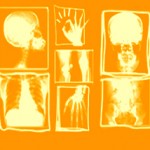10 Nov Your immune and lymphatic system

If some sketchy looking strangers knock on your door and you don’t want to let them in, let alone answer the door, wouldn’t it be nice to have a big strong general and a troop of fighters at your disposal to keep you safe? Like. All. The. Time.? Turns out that you do. At least your body does. Only the general and his troops are your Immune System and the sketchy looking strangers are often microscopic little buggers called antigens that are trying to cause your body harm. This sub post will explain how that whole Immune System of yours operates to keep you well protected.
Your Immune system is composed of cells (the general and his troops) and organs located throughout your body to keep invaders (those sketchy antigens) away or to destroy unwanted trespassers within your body.
The Lymphatic System works closely with the Immune System—they are like allies in a war on foreign invaders and rogue cells, so you’ll learn about that too.
Together, these systems rely heavily on three things:
- the general and his troops (cells in your body) to patrol and/or fight when necessary,
- the barracks where most of the troops live (lymphatic sites in your body), and
- the supply routes the troops follow (the lymphatic vessels).
When an infection occurs, the body is under attack (sketchy infection knocks on door). Infections happen when tiny, tiny (micro) organisms such as certain bacteria, viruses, parasites and fungi knock on your doors and somehow get in (those doors are usually a mucus membrane—your nose, skin, mouth, eyes—and other entry points).
These micro-organisms are everywhere: in the air we breathe (common way for the flu to be caught), in the germs we sneeze (onto our hands which touch doors and then healthy people open the door after us, and… the common cold); in the food we eat (perhaps from not well washed salad greens carrying a fungus or parasite from the earth in which they grew). We can also get an infection when we cut ourselves or, even when we pop a pimple and open up the skin that way. The list is long. So many ways exist to send our body—our immune system—into combat mode.
When your body needs to fight an invader or heal a wound, your blood carries supplies to the right places, including supplies that come from your Lymphatic System in the form of the general and his troops, as mentioned above. The general is called a lymphocyte—lymphocytes command the troops to attack.
But before lymphocytes become big bad generals, they are babies born in the bone marrow (where all blood cells are produced, btw). They can stay in their bone marrow birthplace and mature into B-cells (for Bone marrow), or they can become T-cells and march off into the Thymus (a barracks to the Lymphatic System) to hang out there.
The T-cells live in different barracks and have a different job than the B-cells. T-cells attack and destroy the invader/antigen (those sketchy guys knocking on the bodies’ doors). B-cells create antibodies (like chemical weapons) to freeze the antigen and target it for destruction. (And if you need more information than that, then your teacher should be in medical school training, not high school biology!)
Both lymphocyte generals have lots of troops at their disposal. Those troops are mostly made up of cells called phagocytes and natural killer cells (we mention this because you may be tested on those terms!). All these troops head into combat to destroy the bad micro-organisms. [Your head would spin if we named all the types of white blood cells (troops) that are under the command of the generals, but if you need to know them, then maybe you are prepping for medical school! Go you!]
The Thymus is one of many barracks where the general and the troops hang out. It’s up to the general to decide where he sends his troops from there. The troops can work in the various lymphoid organs (discussed below) or go on missions to patrol and keep the body safe. If they choose to go on patrol, they use the lymphatic vessels and sometimes the blood to patrol the body and report back to the general lymphocyte what they see.
The troops who live in the lymphoid organs carry around a fluid called lymph. Their job is to travel the body and collect garbage by riding in their own special system of lymphatic vessels. Yes, you have all the blood vessels for the circulatory system and now you know you have the lymphatic vessels as well. You have a lot of vessels. Those two vessel systems communicate with each other because when an invader attacks the blood stream, the general alerts troops to enter the blood stream from the lymphatic system of nodes and nodules and join forces with the blood cells as well in order to work as allies and get the job done. Lymph nodes are cute little organs shaped like beans located all over your body, especially in your gut, under your arms and around your groin area. You have hundreds of them! They connect to and filter waste from the lymphatic vessels. The two main ones in your gut are Peyer’s patches and your spleen. In your nose and mouth, you have adenoids and tonsils which work to trap germs entering your body through those routes. You may know of someone who has had those removed!

DID YOU KNOW? Lymph is made up of 90% water and 10% other stuff like proteins, cell waste and hormones, as well as the lymphocyte troops who have been in battle. The lymph fluid flushes out the dead invaders and the damaged troops so they don’t clog up the system.
Now that you know about the general and his troops and all the things that your body is doing to keep you healthy, you can also be on the alert for the battle cries. When you hear them, you can help your body to fight. Spike a fever? The battle cry is, “The battle is heating up and you need to rest.” Sneeze a lot? Your body is saying, “Something is irritating me please get it out of my system.” In fact, any time you have an inflammation (pus around a cut, swelling around a sprained ankle, glands that are three times their normal size) that’s your body on the attack speaking to you. It is saying, “Houston, we have a problem here” and you may want to help it out by resting, treating it with medications or seeing a doctor.

DID YOU KNOW? When your immune system responds to a perfectly normal part of life (shellfish, peanuts, pollen) and not to a bacteria or virus and turns on the troops, you have an allergy. That allergy can become extremely dangerous, even life threatening, when the response becomes more and more intense.




Post Question:
Do you have a tip for helping out your immune system? Share it here.
Answer the post question here
What's being said